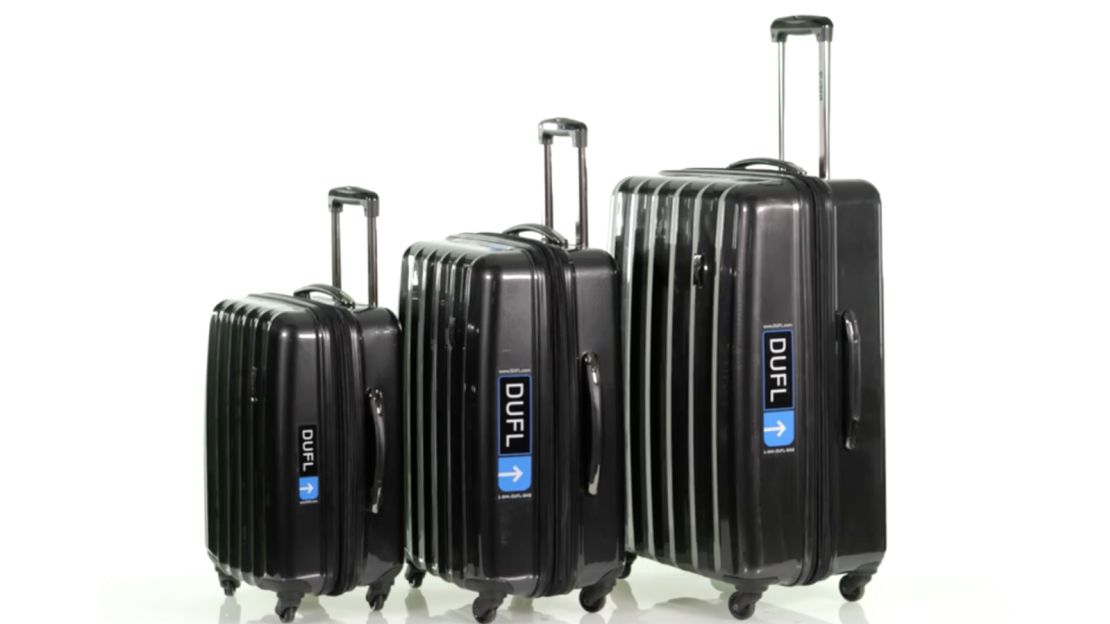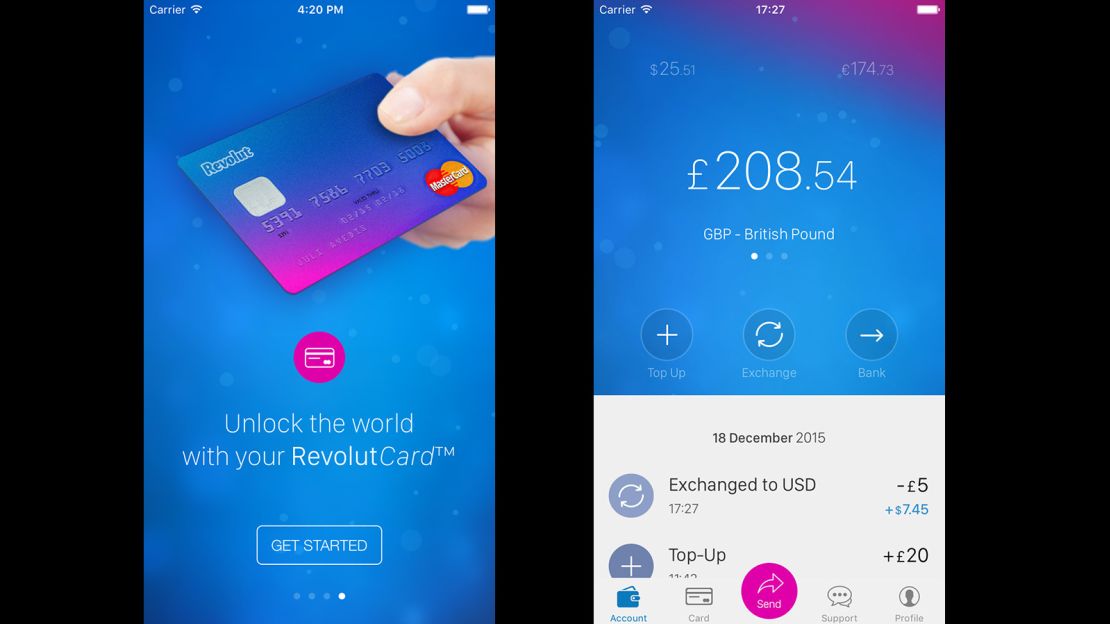Vacation travel might be a chance to relax, but business trips are too often long stretches of tedium punctuated by tension and frustration.
In fact, a 2012 study by corporate travel agency Carson Wagonlit Travel found that travelers lose an average of 6.9 hours to stress on every work trip.
Technology might not be the solution to all life’s ills, but there are still a bunch of new services and apps on the market making travel that bit easier for the tired, lonely worker.
CNN caught up with some of the people behind them at the recent Business Travel Show in London – including the winner of the Disrupt Award for outstanding innovation in a start-up.
Stress #1: Baggage
“We’re getting rid of luggage,” declares George Meek, EMEA Managing Director of virtual valet service DUFL.
“We ship, clean and store your business attire” as well as shoes, accessories, full-size toiletries, hairdryers and whatever travelers need to feel their usual sleek selves – allowing them to “travel bag-free” and pick up freshly laundered clothes at their destination.
The service launched last May and last week it won the London travel show’s Business Travel Disrupt Award for innovation.
Multi-leg journeys and frequent traveling means many workers barely have time to catch up with family between stops, never mind unpacking, washing, ironing and packing.
With DUFL, users sign up, pack their welcome suitcase with as many items as they need – the average is about 50 – then with each trip they “pack” what they want by choosing belongings from their “virtual closet.”
The monthly fee for storage is $9.95 while the service itself costs $99 per round trip.
DUFL launched in the U.S. and is currently available in select business hubs in Europe, Canada, Singapore, Tokyo, Hong Kong, Sydney and Melbourne.
DUFL Sports launched this month and DUFL Golf launches in Japan in March.

Stress #2: Boredom
Networking app Jambo launched at the end of last year, and is currently invitation only, with a testing base of 300 users.
CEO and founder Laura Stembridge came up with “a platform that’s essentially LinkedIn on the go” after one too many work trip evenings that ended with “room service, dinner for one, date with my Kindle.”
Business professionals can “expand their network internally within their organization or externally with other business travelers” by arranging to meet for dinner or drinks. The app also recommends local networking events curated for the user.
A new “tribe” functionality launches this month, allowing users to join tribes related to their organization, industry, or leisure interests.
You can sign up here.
Stress #3: Finding somewhere to stay
Inevitably, whenever there’s a major trade show in town, latecomers will find every hotel in the area booked solid.
That’s where MagicEvent (rebranding soon as MagicStay) comes in.
It’s an Airbnb-style service aimed at business travelers, and partners with industry events to secure appropriate accommodation in business centers.
The French start-up has around 20,000 apartments in 60 cities, mostly in Europe and the U.S., with some presence in South Africa and the UAE.
Apartments and their owners are vetted by online application and phone interview before being added to the books, and are selected according to location, business equipment, Wi-Fi and appropriate work space.
Stress #4: Rip-off rates and fees
Revolut is a global money app and debit card that promises to help users easily and transparently manage their money around the world.
It launched in July 2015 and Revolut business analyst Gus Gould explains that it already supports 90 currencies, with no international transaction fees, no need for IBANs or frantic cash transfers to pay off outstanding debts.
MORE: Best credit cards for business travelers
“You have the option to top up in pounds, dollars and euros,” says Gould, and then exchange currencies at the interbank exchange rate without going through any banks.
There’s “really no need for people to be ripped off with these poor exchange rates,” he says.

Stress #5: Booking multi-leg trips
Italian start-up Beepry, which launched in November 2015, hopes to take on the big-name search engines with its flight meta search specializing in complex itineraries.
CEO and founder Salvatore Ambrosino says his company’s patent-pending algorithm gives it an edge, finding the best solution in terms of cost and efficiency “faster, cheaper and more relevant to the needs of the user.”
Beepry is currently targeting business corporations rather than individual users.
The good news for Beepry is that a lot of business travelers are dissatisfied with their company’s current travel booking system.
A February 2016 study by Global Business Travel Association found that about two-thirds of workers used alternative channels when booking their business trips, whether or not that was approved by their employers.
Stress #6: Booking efficient, economic ground travel
We’re “incorporating ride shares into the travel industry,” says Zacky Hamraz, director of growth at Flitways, which launched in 2014.
Users can pre-book taxis, executive cars, ride-shares in the 140 cities Flitways covers. Its USP is that users can book up to one year in advance – although with business plans changing on a daily basis, we’re not sure how many travelers are that organized.
The most interesting part of the service is that users can pre-book an affordable ride-share, instead of having to wait until they land at the airport, hoping they find something affordable.
Hamras claims that his service’s “taxi rates are lower than the industry standard rate” because of its direct relationship with suppliers.
Stress #7: Your flight’s economy but your needs are premium
No lounge? No problem.
Android and iOS app Loungebuddy helps fliers locate, preview and book last-minute seats in airports around the world.
So travelers in need of a work space, a shower, or a drink and a rest, no longer need to be part of the first-class club – and it quickly takes the stress out of long airport delays.
It’s another success for CEO and founder Tyler Dikman, who launched computer supply company CoolTronics at the age of 15 and had made a million dollars in sales before leaving high school.
Any flier is able to book a lounge for a fee – usually $20 to $50 – while frequent fliers who’re already qualified to access a lounge can book space through the service for free.




